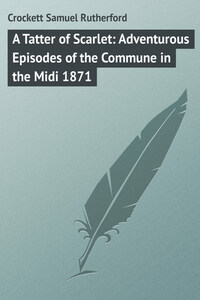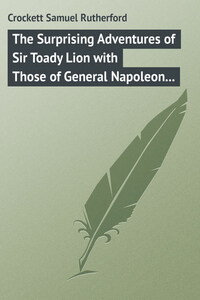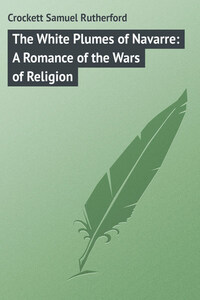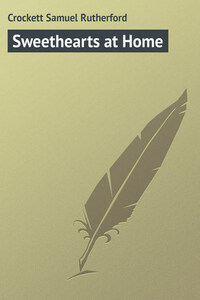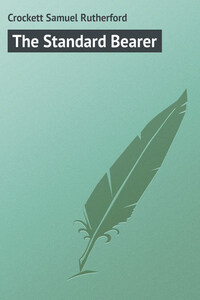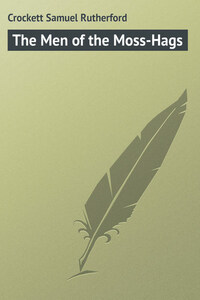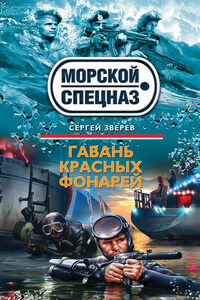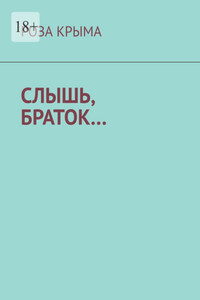CHAPTER I
HOW THE TRICOLOUR CAME DOWN
Deventer and I leaned on the parapet and watched the curious things which were happening in Aramon across the river. We were the biggest boys in the school and kept even the Seniors in awe, being "Les Anglais" to them – and so familiar with the "boxe" – though Deventer was an Irishman, and I, Angus Cawdor, a Scot of the Scots.
We had explained the difference to them many times by arguments which may have temporarily persuaded some, but without in the least affecting the fixed French notion that all English-speaking people are of English race.
Behind us circulated the usual menagerie-promenade of the "Grands," gabbling and whispering tremendous secrets in files of two and three.
Hugh Deventer was a great hulk of a fellow who would take half a dozen French Seniors and rub their heads together if I told him, laughing loudly at their protestations as to loss of honour. He had been challenged several times to fight duels with small swords, but the Frenchmen had given that up now. For Deventer spat on his palms and pursued the seconds who came with the challenge round and round the playground till he caught and smacked them. Whereat he laughed again. His father was chief of the Small Arms Factory, which of late years had been added to the arsenal works of New Aramon opposite to us on the left bank of the Rhône.
My own father was a clergyman, who for the sake of his health had retired to the dry sunny Rhône valley, and had settled in a green and white villa at Aramon because of the famous lycée which was perched up on the heights of Aramon le Vieux.
There was not much to distinguish Aramon the Old from Aramon the New, that is, from a distance. Both glowed out startingly white and delicately creamy between the burnished river and the flawless sapphire of the Provençal sky. It was still winter time by the calendar, but the sun beat on our bowed shoulders as we bent over the solid masonry of the breastwork, and the stones were hotter than in English dog-days as we plucked away our hands from it.
Deventer and I looked across at the greater New Aramon where his father lived. It was the Aramon of shops and hotels and factories, while Aramon le Vieux, over which our great lycée throned it like a glorified barracks, was a place of crumbling walls, ancient arcaded streets, twelfth-century palaces let as tenements, and all the interesting débris of a historical city on the verges of Languedoc.
Our French lycéens were too used to all this beauty and antiquity to care anything about it, but we English did. We were left pretty much to ourselves on our rare days of liberty, and as the professors, and especially the proviseur, knew that we were to be trusted, we were allowed to poke about the old Languedocian outpost much as we pleased.
It was the month of January, 1871. France was invaded, beaten, but not conquered; but here in the far South, though tongues wagged fiercely, in his heart the good bourgeois was glad to be out of it all.
At any rate, the lycée was carried on just as usual. Punishments were dealt out and tasks exacted. Pions watched constantly over our unstable morals, and occasionally reported misdemeanours of a milder kind, not daring to make their position worse by revealing anything that really mattered.
But, generally speaking, Aramon le Vieux dreamed away the hours, blinking in the sunshine. The war did not touch it save in the fierce clatter of café dispute. Only in the forts that rose about the arsenal of the newer city opposite to us a feeble guard of artillery and linesmen lingered as a protection for the Small Arms Factory.
For the new Paris Government was still far from stable, and some feared a renewal of the White Terror of 1815, and others the Red of the Commune of 1848. The workmen of the arsenal, hastily gathered from all quarters, were mostly sealed to the "Internationale," but it was supposed that the field-pieces in Fort St. André could easily account for any number of these hot-heads.
Besides Hugh Deventer and I there were several other English boys, but they were still screeching like seagulls somewhere in the Lower School and so did not count, except when an anxious mamma besought us with tears in her voice to look after her darling, abandoned all day to his fate among these horrid French.
To "look after" them Deventer and I could not do, but we gathered them into a sort of fives team, and organised a poor feckless game in the windowless angle of the refectory. We also got hockey sticks and bastinadoed their legs for their souls' good to the great marvel of the natives. Deventer had even been responsible for a trial of lacrosse, but good missionaries though we were, we made no French converts.
The Juniors squealed like driven piglings when the ball came their way, while the Seniors preferred walking up and down their paved cattle-pen, interminably talking with linked arms and lips close to the ear of a chosen friend.
Always one or two read as they walked alone, memorising fiercely against next Saturday's examination.
